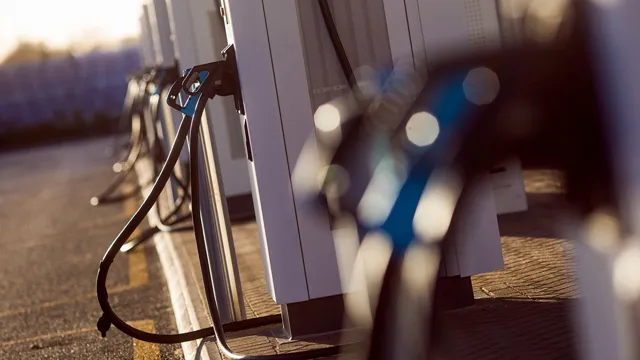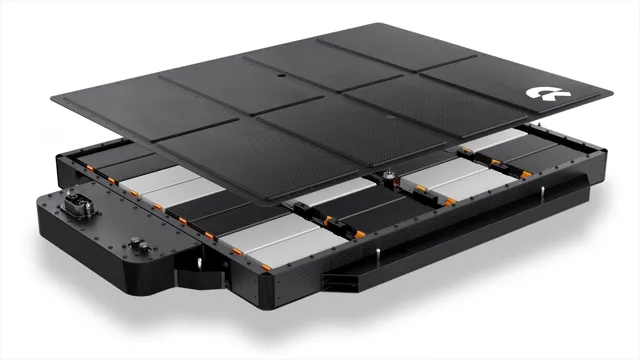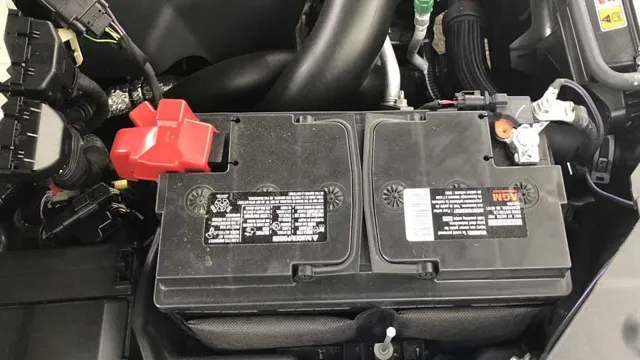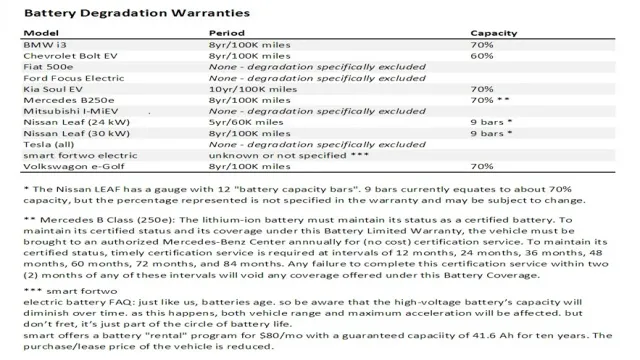Charging Up: How batteries for electric cars are accelerating towards a game-changing tipping point
Electric cars are becoming increasingly popular as people look for ways to reduce their carbon footprint and make a positive impact on the environment. However, one of the biggest challenges holding back widespread adoption of electric vehicles is the cost and effectiveness of their batteries. But, according to industry experts, we may be on the cusp of a tipping point when it comes to electric car batteries.
With advancements in technology and increased investment in production, we could see electric car batteries become more affordable and powerful than ever before. This could transform the automotive industry and help to accelerate the transition towards a cleaner, more sustainable future. So, are we on the brink of a battery revolution that will change the way we drive forever?
Costs of Electric Car Batteries Drop
Batteries for electric cars are becoming more affordable as advancements in technology drive costs down. According to a recent report by Bloomberg NEF, the price of lithium-ion battery packs has dropped more than 80 percent per kilowatt-hour since 20 Electric car manufacturers like Tesla and General Motors are leading the charge in driving down costs by investing in larger-scale battery production.
This increased production has helped create the critical mass needed to lower costs by improving economies of scale. In addition, advancements in battery chemistry and design have also helped to extend the life and performance of electric car batteries. As a result, the cost of electric cars is becoming more competitive with traditional gas-powered cars, making electric vehicles an increasingly attractive option for environmentally-conscious consumers.
It’s clear that batteries for electric cars are speeding toward a tipping point where they may become the go-to option for drivers everywhere.
Major Manufacturers Drive Prices Down
Electric Car Batteries It’s great news for the electric vehicle market as the cost of electric car batteries continues to decline. Major manufacturers such as Tesla and Volkswagen have been driving the prices down, making them more affordable for the average consumer. In just the last few years, the cost per kilowatt-hour (kWh) has dropped significantly, and experts predict that this trend will continue.
The advancements in battery technology have also played a vital role in this trend, making batteries more efficient and longer-lasting. This is great news for the environment, as more people switch to electric vehicles, reducing greenhouse gas emissions. Plus, with the cost of owning an electric vehicle becoming more accessible, it’s a win-win situation for everyone.
So, if you’re considering switching to an electric vehicle, now is the perfect time to do so. Not only will you be doing your bit for the environment, but you’ll be saving money in the long run too!
New Technology Improves Energy Density
Electric Car Batteries Good news for electric car enthusiasts! New technology advancements have improved the energy density of electric car batteries, which means longer ranges per charge. In addition, the costs of these batteries are dropping, making electric cars more affordable for consumers. With the new technology, lighter and smaller batteries with higher energy density can be produced, leading to better performance and affordability.
This progression also signifies a shift toward clean energy and a greener future. As electric cars continue to improve and become more accessible, we can expect more drivers to make the switch from gas-powered vehicles to eco-friendlier options. With the added benefits of cost-effectiveness and improved energy density, it’s clear that electric car batteries are paving the way for a cleaner, more sustainable future.
Transition to Electric Cars Accelerates
The transition to electric cars is happening at a rapid pace, and it’s all thanks to the advances in battery technology. Batteries for electric cars are speeding toward a tipping point that could drastically change the auto industry. The tipping point is the moment when the cost of producing electric vehicles equals that of gas vehicles.
This cost parity will make electric cars more accessible and affordable to the masses, and it could occur as soon as 202 With the demand for electric cars on the rise, car manufacturers are investing heavily in battery technology to increase the range, improve performance, and decrease charging times. The push towards electric cars is not only benefiting the environment but also the economy.
The production of batteries is creating jobs, and the demand for battery components such as lithium is driving innovation in the industry. It’s an exciting time for the auto industry, and batteries for electric cars are at the forefront of this evolution.
Governments Set Targets for 100% Electric Cars
As the world becomes more conscious of the impact of carbon emissions on the environment, governments across the globe have set targets for 100% electric cars. This transition to electric cars is accelerating, and it’s no surprise given the benefits of electric cars. Electric cars are much cleaner and have lower maintenance costs compared to traditional gasoline cars.
Furthermore, advancements in battery technology have made charging more convenient, and electric cars now have a longer range, making them a practical option for long-distance journeys. The shift towards 100% electric cars is also creating new job opportunities in the electric vehicle industry and reducing our dependence on fossil fuels. As more car manufacturers begin to produce electric cars, and with the support of governments, it is only a matter of time before electric cars become the norm.
We can all do our bit in supporting this transition to electric cars by considering an electric car for our next car purchase or making use of public transport. It’s exciting to think about what the future holds in terms of sustainable transportation and cleaner air.
EV Sales Boom in Europe and China
The rise of electric vehicles (EVs) continues to speed up, with sales booming in both Europe and China. The push towards sustainable transportation has led to a surge in EV adoption, as more people opt for environmentally-friendly cars. In 2020, the European Union saw EV sales increase by over 100% compared to the previous year, with countries like Germany, France, and the Netherlands leading the charge.
Meanwhile, China has become the largest market for electric cars in the world, with sales of nearly 4 million EVs in 2020 alone. This rapid transition to electric vehicles not only reduces carbon emissions but also creates new jobs and opportunities in the manufacturing and renewable energy industries.
It’s clear that the switch to electric cars is gaining momentum and is here to stay. Are you ready to be a part of the green revolution?
Battery Production Ramps Up
The race toward greener transportation is getting a boost from surging battery production, as automakers ramp up efforts to switch to electric cars. With consumers increasingly demanding eco-friendly alternatives, EVs are fast becoming the go-to choice for forward-thinking drivers. And with production costs for batteries falling rapidly, this shift is set to accelerate.
While there are some challenges facing the industry, such as limited lithium supply and concerns about recycling, many experts predict that the future of transportation is electric. So if you’re looking to make a more sustainable choice for your commute, now could be the perfect time to go electric!
Challenges Remain for Widespread Adoption
While the development of batteries for electric cars is speeding toward a tipping point, challenges still exist for the widespread adoption of electric vehicles. One of the most significant issues is the lack of charging infrastructure. Many drivers are hesitant to purchase an electric car because they worry they won’t be able to find a charging station when they need it.
Another difficulty is the cost of batteries, which remains high despite recent reductions. Additionally, batteries for electric cars have a limited lifespan and are difficult to recycle, leading to concerns about sustainability. However, despite these challenges, the future still looks bright for electric vehicles.
As more countries commit to reducing their carbon emissions, the demand for electric cars is likely to increase, and with further research and development, solutions to these challenges will emerge. The batteries for electric cars are on the brink of mass adoption, and it won’t be long before they become the norm on our streets.
Infrastructure for Charging Lags Behind
Despite significant advancements in electric vehicle technology, the infrastructure for charging electric cars lags behind, presenting a significant challenge for the widespread adoption of electric vehicles. While more and more charging stations are being installed, there are still not enough of them to support a growing number of electric cars on the road. Moreover, even when charging stations are available, the charging process can be time-consuming, often taking several hours to complete.
This begs the question: who has the time to wait for their car to charge for hours when they have places to go and people to see? As a result, many people still view electric vehicles as impractical and not yet ready for mainstream adoption. Nevertheless, with continuing technological advancements and more robust infrastructure, electric vehicles will undoubtedly become more viable, and hopefully, commonplace.
Recycling and Disposal of Batteries Raises Concerns
Recycling and disposal of batteries have become major environmental concerns, as their widespread adoption continues to pose significant challenges. While batteries have become a necessary part of modern life, they also have a hazardous impact on the environment if not properly disposed of. Not only do batteries contain toxic chemicals that can harm wildlife and ecosystems, but also, their improper disposal can lead to fires and explosions in garbage trucks and landfills.
Despite increasing awareness about the importance of recycling batteries, many people still find it challenging to sustainably dispose of them. Nevertheless, recycling companies work hard to make the process more accessible and efficient. The good news is some states and local governments have implemented policies to make recycling more accessible for their residents.
However, more efforts are needed to ensure the proper recycling and disposal of batteries.
What’s Next for Electric Car Batteries?
Batteries for electric cars are rapidly approaching a tipping point that could change the landscape of the automobile industry forever. Scientists and engineers have been working tirelessly to improve battery technology, and their efforts are paying off. Today’s electric car batteries are better than ever before, with longer ranges and faster charging times than ever before.
But this is just the tip of the iceberg. Researchers are now exploring new materials and technologies that could lead to even more efficient and powerful batteries. One of the most promising areas of research is solid-state batteries, which could store more energy in smaller packages and potentially last longer than traditional lithium-ion batteries.
With advancements like these, it’s clear that the future of electric cars will be powered by some of the most advanced batteries ever created.
Conclusion
Looks like electric cars are about to go on a wild ride, thanks to the speed at which battery technology is advancing. With improved efficiency and lower costs, it won’t be long before electric cars are the norm on our roads. So, if you’re still driving a gas-guzzling, pollution-spewing vehicle, it might be time to buckle up and prepare for a change – because the tide is turning and you don’t want to be left behind!”
FAQs
What is the current state of the electric car battery market?
The electric car battery market is rapidly approaching a tipping point, with many major automakers investing heavily in battery technology.
How do batteries affect the performance of electric cars?
The performance of electric cars is largely dependent on battery technology, as better batteries allow for faster charging times and longer driving ranges.
What are some of the challenges facing the electric car battery market?
One of the biggest challenges is developing batteries that are both affordable and long-lasting, as well as creating a charging infrastructure that can support widespread electric vehicle adoption.
What are some of the benefits of using electric car batteries?
Electric car batteries offer a number of benefits compared to traditional gasoline engines, including lower emissions, reduced noise pollution, and lower fuel costs in the long run.



